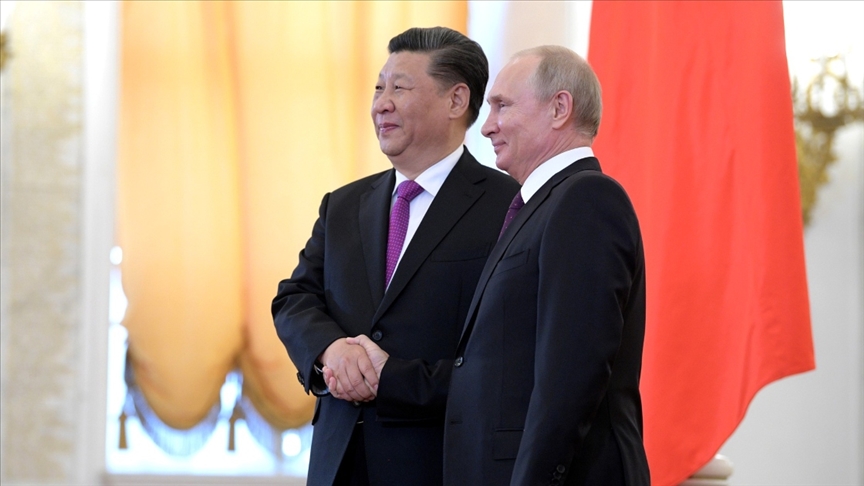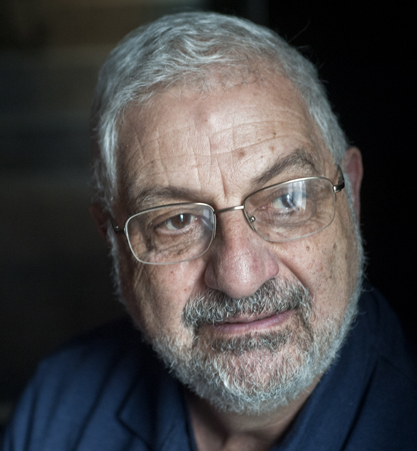The Autocracy Trap


Authoritarian governments operate by different rules from democratic governments, and whatever problems and pathologies the two different systems create are unique to each system. Democratic governments have to subordinate their policies and programs to the opinion of the governed, at least to a certain degree, as well as to powerful vested interest groups, like big business, trade unions, and establishment intellectuals and politicians. They must use persuasion rather than coercion to achieve their goals. In the United States foreign policy is often subordinated to domestic political concerns. In dealing with President Vladimir Putin of Russia, President Joseph Biden must consider what the members of his own Democratic Party think about the ruler of the largest country in the world as well as the persistent opposition from the opposition, the Republican Party. Putin, on the other hand, can afford to neglect public opinion, to a certain extent but not entirely (ordinary Russians protested loudly when the age at which pensioners would receive payments was raised), while making sure that the powerful oligarchic, military, and political interests of the elites are satisfied. Authoritarian governments are freer than democratic ones to use coercion instead of persuasion but not entirely. Even they operate with a social contract with their people: you let us govern and even grow rich, and we will deliver the goods, establish security, defend the country, and, if we are able, increase the wealth and welfare of the nation.
That seems to be the deal that the Communist Party of China has made with its billion and a quarter people, and it has paid off rather well. The regime in Beijing has lifted much of the country out of poverty, developed a modern consumer economy, and raised China from a marginalized and humiliated state into a superpower recognized and feared by the United States. But anxious about the kind of disintegration that occurred in the Soviet Union, the Chinese Communists decided that they would prioritize economic development along capitalist lines but crack down hard and repress any tendencies toward liberal democracy. The brutal massacre at Tiananmen Square in June 1989 was, in the mind of the reformer Deng Xiaoping, essential to preserve the party’s power, while initiating a radical reshaping of the economy and society. His contemporary in the Soviet Union, Mikhail Gorbachev, was reluctant to use military force and tried to institute both economic liberalization and democratization simultaneously, only to lose power and watch the destruction of his country. The lesson was learned in Beijing, and the current Chinese leader, Xi Jinping, preserves the memory of what happens when a great authoritarian state loosens its grip on the levers of government and gives voice to people in the street.
Vladimir Putin also preserves that memory. He lives with two great fears. The first is that revolutions of ordinary people, so-called “colored revolutions,” which he believes are artificial and instigated by hostile forces from the West, threatens the stability of his country. Therefore, he supports his fellow authoritarian strongmen in neighboring former Soviet republics, Belarus, Kazakhstan, and elsewhere. He does not like people in the street, even though he tolerated one democratic revolution a few years ago in small, beleaguered Armenia. The popular Armenian democrat, Nikol Pashinyan, who carried out a relatively peaceful and bloodless “velvet revolution,” repeatedly assured the Kremlin that his movement was not anti-Russian but anti-corruption. After these assurances, Putin reluctantly went along with the anti-oligarchic movement, but when war broke out between Armenia and Azerbaijan in the fall of 2020, Russia stood by and did not come to Yerevan and Karabakh’s assistance while Turkish and Israeli drones killed Armenians and guaranteed victory by Baku. Pashinyan learned his own bitter lesson that he had to defer to Russia’s interests, and recently when a spontaneous uprising of discontented Kazakhs exploded in Central Asia, he as the current chairman of the Collective Security Treaty Organization – the Russian-dominated NATO equivalent of six former Soviet republics – quickly authorized the sending of troops to quell the rebellion.
Putin’s other great fear is that the West is determined to contain Russia behind a new Iron Curtain of allied, armed Western-oriented NATO states. He believes, not without reason, that the United States in particular desires a weak Russia and the expansion of Western influence into Ukraine and other states of the former Soviet Union. Twice in the twentieth century Great Powers attempted to drive Russia out of Europe and into Asia. In two world wars Russia suffered catastrophic losses in people and property, only to reemerge as a Great Power. Putin knows that Russia is a relatively weak state, militarily and economically vis-à-vis the West but is a relatively strong state in its own neighborhood, the former Soviet space. He is making headlines around the world as he attempts through a display of military mobilization to convince the West that NATO should not expand any further, to get Europe and America to promise that Ukraine will not be admitted into the anti-Russian alliance, and to reduce or withdraw the rockets and other armaments placed in Eastern European countries. Putin is determined to restore Russia to dominance in his neighborhood, but he has instead fallen into what I call “the autocracy trap.”
Authoritarian leaders suffer from peculiar forms of isolation and dependence. Living and operating remote from the interchanges with diverse sources of information, authoritarian leaders are segregated from knowledge of their own country and people. Information flows upward slowly, usually through police channels, and is filtered by the satraps surrounding the leader. That information is distorted and unlikely to be challenged by alternative views. The complexity of a changing world solidifies into uncomplicated perceptions of reality, resistant to revision. Here conservative, nationalist, xenophobic, even paranoid, views might prevail, providing simple, reductive understandings of the world that lead to missteps that are potentially damaging.
Besides isolation, authoritarians, who appear to be, and think they are, strongmen, are in actuality dependent on those around them. They must fear not only the people that they rule but those closest to them – the generals, the high bureaucrats, and those with their hands on the economic levers – that is, those with whom they share power. Much more than popular uprisings, as in Belarus and Kazakhstan, authoritarian leaders fear – and are much more likely to be overthrown by -- regime insiders. As Yale University political scientist Milan Svolik has discovered, “an overwhelming majority of dictators lose power to those inside the gates of the presidential palace rather than to the masses outside.” “Authoritarian politics,” he writes, “takes place in the shadow of betrayal and violence.” The authoritarian’s fears of those below and those around at times tempt the leader to move from shared power to personal autocracy, a form of rule that reduces dependence on others but only increases isolation, the greater use of coercion, and colossal, costly mistakes. Think of Stalin during the Great Purges or in the early days of the Nazi invasion as he misread the signs of the coming catastrophe, or Mao Zedong during the Great Leap Forward or the Cultural Revolution.
Democratic leaders, on the other hand, are too much in the world. They are concerned with the vagaries and fluctuations of opinion and must deal with persistent stereotypes of opponents foreign and domestic that once created are difficult to change. Democratic political systems limit executive power, which generally is effective in preventing authoritarian tendencies but may lead to the kind of political paralysis now crippling the American system. Reform even when desperately needed becomes impossible. Democracies also are not immune from colossal and costly mistakes. Consider the series of wars that the United States entered or launched since the end of World War II, which resulted in millions of lives lost. Arguably, America – not Russia or China -- has caused more deaths outside its own borders than any other state on the globe.
Yet, although their normal operation may be fraught by social and political divisions, there is usually a flow of information that encourages correction of misguided policies. There are efficiencies provided by a free press, the right to assembly and protest, and elections that actually register the preferences of the population. In our times revolutions may no longer be possible, given the overwhelming might and brutality of governments. Drones are vicious weapons difficult to defend against, and aerial warfare that does not discriminate between warriors and civilians is choice that should be condemned as a crime against humanity. Sadly, such horrific weapons are in the hands of both authoritarians and democrats who want to preserve their hegemonic positions at home and abroad. The thin reed of hope is that a more enlightened and humane population might influence their leaders to restrain the instruments of violence and rely more on persuasion rather than coercion. Given the choice between authoritarianism and democracy, that hope seems more likely to prevail where ordinary people have a voice and are willing to take to the streets.



